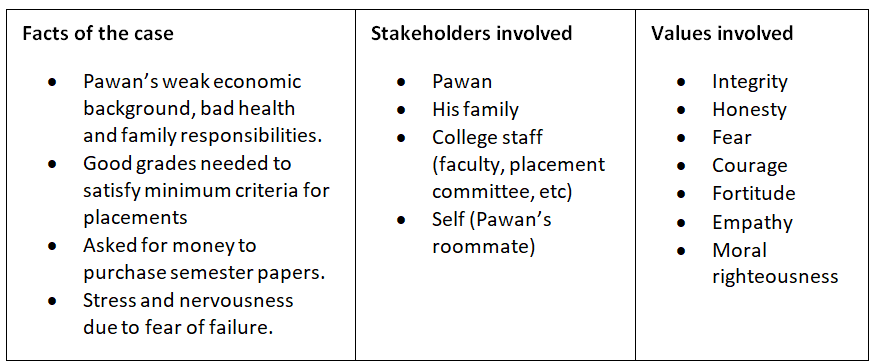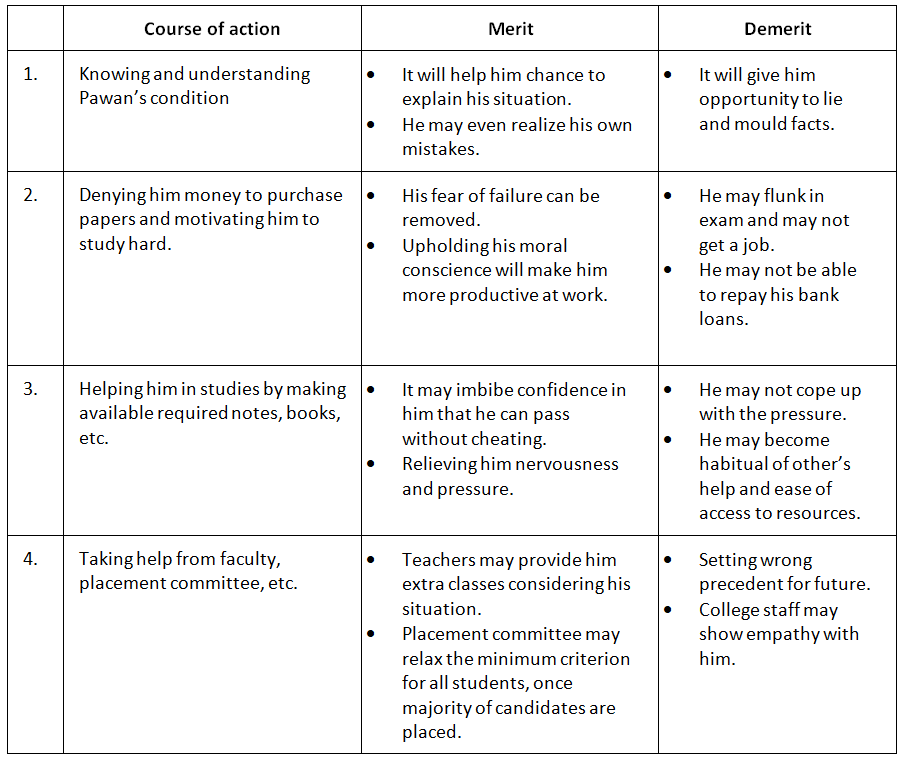Ethics: January 2023 UPSC Current Affairs | Current Affairs & Hindu Analysis: Daily, Weekly & Monthly PDF Download
ChatGPT and Associated Ethical Concerns
 Why in news?
Why in news?
- Ever since the ChatGPT, an artificial intelligence (AI)-powered chatbot, was made public, users have been testing the bot’s capability to do nefarious (immoral) things.
- This has raised concerns among intellectuals as there are many ways in which such a tool could be exploited.
What is ChatGPT?
- ChatGPT is a state-of-the-art natural language processing (NLP) model developed by OpenAI.
- NLP is the ability of a computer program to understand human language as it is spoken and written
- It is a component of artificial intelligence (AI).
- It is a variant of the popular GPT-3 (Generative Pertained Transformer 3) model, which has been trained on a massive amount of text data to generate human-like responses to a given input.
- The answers provided by this chatbot are intended to be technical and free of jargon.
- It can provide responses that sound like human speech, enabling natural dialogue between the user and the virtual assistant.
How does it work?
- ChatGPT uses a neural network architecture and unsupervised learning to generate responses.
- Other traditional models rely on explicitly created rules and labelled data.
- This means that it can learn to generate responses without explicitly told what is the correct response.
- This makes it a powerful tool for handling a wide range of conversational tasks.
- One of the key features of ChatGPT is its ability to generate responses that are consistent with the context of the conversation.
- The model is able to understand the flow of the conversation and generate responses that fit naturally with what has been said previously.
Where is it used mostly?
- ChatGPT is much more than a chat bot (generating responses). For example, it can be asked to write a program or even a simple software application.
- Performing a range of other tasks, such as language translation, text summarisation, and sentiment analysis.
- Valuable asset for companies in fields such as customer service, online education, help debug a code and market research.
- Replacement for the basic emails, party planning lists, CVs, and even college essays and homework.
- Creative tasks such as writing a story and can explain scientific concepts and answer any question that needs factual answers.
- Reviewing and writing codes in seconds, making the future of coders grim.
Are there any ethical issues surrounding the use of ChatGPT?
- Malicious code generator
- Recently, many users claimed the chatbot helped them write malicious code.
- Although, ChatGPT, is programmed to block obvious requests to write phishing emails or code for hackers.
- However, the more seasoned hackers could trick the bot into correcting or enhancing malicious code they have partially developed.
- They could get through the system by phrasing their request in an harmless
- Impact on written assignments
- Teachers and academicians have also expressed concerns that the bot could be used to turn in plagiarised essays that could be hard to detect for invigilators due to lack of time.
- The use of ChatGpt raises questions about how individuals will identify AI-generated content that others might pass off as their original work.
- Quick spread of misinformation and fraud
- Chatbot is capable of generating authentic-sounding news reports that were filled with misinformation to spread fake news & instigate violence against minorities.
- Racial and sexist biases
- The ChatGPT displayed racial and sexist biases, which remains a problem with almost all AI models.
Conclusion
- ChatGPT is an effective technology that has the power to change how we teach and learn thoroughly.
- The safeguards and entry barriers put into place before the official release of OpenAI’s ChatGPT needs to be upgraded regularly to deny the unethical requests.
Ideals of Mahatma Gandhi
 Why in News?
Why in News?
The Nation pays tribute to Mahatma Gandhi on his 75th death anniversary on 30th January 2023. The day is also observed as Martyrs' Day.
What are the Major Gandhian Ideologies?
- Vision for India: Gandhi's vision for India went beyond political independence from colonial rule.
- He aimed for social emancipation, economic empowerment, and a shared sense of solidarity across different language, religion, and cultural backgrounds.
- Non-violence: Gandhi was a strong advocate of non-violence and believed that it was the most powerful weapon in the struggle for justice and freedom.
- He also believed that non-violence should be a way of life, not just a political strategy, and that it would lead to lasting peace and social harmony.
- Gandhi was a leader who inspired and empowered the people through love and compassion.
- Against Discrimination: Gandhi travelled all over India and saw the different cultural parts of the country. He brought people together by highlighting the common things that united them, like their faith.
- Gandhi strongly believed in treating everyone equally, regardless of religion or caste. He was against discrimination and the practice of untouchability.
- Secular Outlook: Gandhi was a Hindu but believed in a secular India, where all religions could exist peacefully together. He was very upset about the partition of India, which was based on religion.
- Today, it is important to remember Gandhi's values of peace, inclusiveness, and harmony as these values are still relevant.
- Communal Harmony: Gandhi was a firm believer in the unity of all communities and worked tirelessly to promote communal harmony.
- He believed that India's strength lay in its diversity and that this diversity should be celebrated, not feared.
- He was deeply troubled by the Hindu-Muslim divide and worked to bring the two communities together.
- Self-Reliance: Gandhi believed in the importance of self-reliance and encouraged Indians to become self-sufficient in as many ways as possible.
- He encouraged the use of local resources and traditional skills and the development of cottage industries.
- He also believed that the people of India should take responsibility for their own development and not rely on external support.
What is the Relevance of Gandhiji in Today’s Context?
- The ideals of truth and nonviolence, which underpin the whole philosophy, are relevant to all humankind, and are considered as universal by the Gandhians.
- More than ever before, Mahatma Gandhi's teachings are valid today, when people are trying to find solutions to the rampant greed, widespread violence, and runaway consumptive style of living.
- The Gandhian technique of mobilising people has been successfully employed by many oppressed societies around the world under the leadership of people like Martin Luther King in the United States, Nelson Mandela in South Africa, and Aung San Suu Kyi in Myanmar, which is an eloquent testimony to the continuing relevance of Mahatma Gandhi.
- The Dalai Lama said, "We have a big war going on today between world peace and world war, between the force of mind and the force of materialism, between democracy and totalitarianism." It is precisely to fight these big wars that the Gandhian philosophy needed in contemporary times.
CASE STUDIES
1. Pawan is pursuing MBA and shares a room with you in the private hostel. He desperately needs a job after completing his course because of educational loan and weak economic background. In his last two semesters, he couldn’t secure good grades due to serious illness. In current semester he has to secure good marks at any cost to satisfy minimum criteria for placements.
Few days before the final semester exam, he comes to you and asks for money. He is stressed and nervous. He tells you about his plan to purchase semester papers to clear the exam and convinces you for the same by giving reference to his bad health, family status and his education loan.
In such circumstances, would it be right to lend money to him?
(a) Identify the moral dilemma faced by you.
(b) Analyse your role and duties as a friend, also suggest your course of action.
Solution: The given case tests the ability of a person to stick to the right means even in difficult circumstances in life. One needs to balance his role as a true friend by making Pawan realize his mistake and simultaneously helping him in other ways. (a) Moral dilemmas faced:
(a) Moral dilemmas faced:
- Means v/s Ends: Taking incorrect means of giving Pawan the money to buy the semester papers to attain the ends of getting good grades which would allow him to sit for placements.
- Social obligation v/s moral righteousness: Supporting one’s friend in need or adhering to one’s conscience by not giving him money.
(b) Roles and duties as a friend:
- A true friend is one who shows the right path. He is one who not only tells ‘what is’ rather ‘what ought to be’. Hence, he is a true friend, philosopher and guide for lifetime.
- He shows the emotional support, empathy, trust, and mutual cooperation in the hardest of times.
- He encourages and motivates others and imbibes confidence in them so that the hidden talent and capabilities can be revived.
 Conclusion
Conclusion
- As suggested by Gandhiji, we always have control over the means but not over the end. As quoted in his book ‘Hind Swaraj’, “one should not expect rose flowers by sowing the seeds of Babool.” Hence, Pawan should adhere to the correct means by not cheating for the sake of passing the exam.
- Also, one can only expect short term gains by following incorrect means. But in the long run, it is always one’s righteousness, ideal conduct, and truth which lead to a successful life.
- Hence, Pawan should be made to realize that excellence is a way of life and in his long career ahead, it will always be his ‘ethical conduct’ which would allow him to steer the path towards success.
2. Young people with ethical conduct are not willing to come forward to join active politics. Suggest steps to motivate them to come forward.
- In India, the word politics over time has come to be associated with corruption, political manipulation, opportunism, nepotism, along with weak moral integrity and character of political leaders. The flexing of muscle and money power in politics has made young people with ethical conduct wary of joining politics these days because.
- They fear that their ethical power cannot compete with the money and muscle power of modern day politician as they cannot be as ruthless as unethical politician in the pursuance of power.
They are also worried as their clean reputation may be spoiled in the dirty game of politics.
In such a scenario, it has become pertinent to motivate youngsters towards politics, through following ways: - Instilling in them a sense of duty and responsibility towards the country and people and by virtue of which, in politics. They can’t change it for better by not entering the system itself. Encourage participation in political debates and school and university elections to raise political awareness and check the indifference creeping in the youth towards politics.
- Perception management by bringing upright leaders to limelight in public discourse, highlighting their work and showcasing the cases of punishment of corrupt leaders, Persuasion and incentives by having a platform dedicated to youth in political parties where they can share their ideas, voice their grievances, experiment with politics, like youth wings, so that they feel their part in political matters. The government and political parties should work together to define and implement career pathways in politics for qualified people, and provide career guidance to young people who want to enter politics in the future.
|
63 videos|5397 docs|1142 tests
|
FAQs on Ethics: January 2023 UPSC Current Affairs - Current Affairs & Hindu Analysis: Daily, Weekly & Monthly
| 1. What are the ethical concerns associated with the use of ChatGPT? |  |
| 2. How does the use of ChatGPT raise ethical concerns related to accountability? |  |
| 3. How can the biases in ChatGPT be addressed to mitigate ethical concerns? |  |
| 4. What measures can be taken to ensure privacy and data security when using ChatGPT? |  |
| 5. How can the responsible use of AI systems like ChatGPT be promoted to address ethical concerns? |  |
















